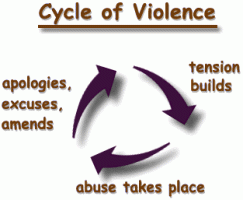23. Adams v. Adams, 219 Ga. 633, 135 S.E.2d 428 (1964).
The father had petitioned to transfer custody on two counts: (1) that the child had turned 14 and had expressed a preference to live with the father, and (2) that the mother was poisoning the child’s mind against him. The trial court denied the mother’s motion to strike the two counts in the father’s petition. The Georgia Supreme Court held that the father’s allegations that the mother had attempted to poison the mind of the parties’ child in her custody, if proven, would authorize a court to order a change of custody. The court also found that the 14-year-old was allowed to select which parent to live with under the relevant statute.
As the court did not have the occasion to address the evidence of the mother’s attempted poisoning of the child’s mind, the court’s opinion does not discuss the underlying facts of the case. However, based on the fact that it was the child’s express preference to live with the father, it is unlikely that the mother’s actions were all that successful.
24. Perry v. Perry, 213 Ga. 847, 102 S.E.2d 534 (1958).
The father petitioned to change the custody award, alleging that the mother had attempted to poison the child’s mind against him. The trial court overruled the mother’s motion to dismiss the father’s petition. This decision was affirmed by the Georgia Supreme Court. The husband’s petition alleged that the mother “implanted a fear of his father in the mind of the child” and that she convinced the child to bring his own lunch with him and refuse to eat anything else when visiting with the father “under the delusion that the food might be poisoned.” 213 Ga. at 850.
The Georgia Supreme Court relied on its earlier decision in Fuller v. Fuller, 197 Ga. 719, 30 S.E.2d 600 (1944), to conclude that the husband’s allegations could justify the transfer of custody. While acknowledging that this previous language in Fuller was dicta, the court found that the reasoning of that decision was persuasive and affirmatively adopted the position that proof of the fact that a parent was attempting to poison the mind of a child against the other parent “would constitute cogent circumstances which the court in the exercise of its discretion would be authorized to consider in passing upon a petition to change custody based thereon.” 213 Ga. at 851.
25. Rowell v. Rowell, 212 Ga. 584, 94 S.E.2d 425 (1956).
The father petitioned for a change of custody after mother had been awarded custody of parties1 child. The mother cross-petitioned for a reduction in the father’s visitation rights based on her claim that the father was attempting to alienate the child from her. The trial court denied the father’s petition to change custody but found that the evidence supported granting the mother’s petition to limit the father’s visitation. The evidence demonstrated that the father’s attempts to alienate the child from the mother caused the child to become “nervous and emotionally upset.” 212 Ga. at 585. The father also called and visited the child at his school, which also resulted in the child becoming emotionally upset and led the principal of the school to bar the father from calling the school again. The Georgia Supreme Court affirmed the trial court’s decision to limit the father’s visitation.
26. Crook v. Crook, 211 Ga. 406, 86 S.E.2d 223 (1955).
The Georgia Supreme Court affirmed the trial court’s decision striking the father’s petition to modify the custody award. Even if the father’s allegations that the mother was poisoning the minds of the parties’ children against him by “instructing them not to respect and honor him and not to love him” were sufficient to show that the mother’s actions had changed since the original custody award, the father was in no position to care for the children, and so awarding him custody would not be in the children’s best interests.
27. Jones v. White, 209 Ga. 412, 73 S.E.2d 187 (1952).
The Georgia Supreme Court affirmed the decision of the trial court to make specific the duration and conditions of the wife’s visitation rights with the children in the father’s custody where the father had exhibited behavior designed to alienate the children from the mother.
The allegations that the father had moved the children over 1,000 miles away from the mother’s residence and that, when she travels that distance to see the children, he refuses to let her visit them or lets her see them “only when it pleases him,” that he has insulted her and intimidated her, has prejudiced the children against her, instructed them not to call her “mother,” and told them that she was not their mother, were such allegations of fact as would support the conclusion that he was an unfit person to have their custody and, if proven to be tine, to authorize a change in custody.
209 Ga. at 412.
28. Elders v. Elders, 206 Ga. 297, 57 S.E.2d 83 (1950).
The mother petitioned for a change of custody, alleging various facts to support a finding that a change in conditions had occurred since the initial custody order. One of these facts was the mother’s claim that “the father had been poisoning [the children’s] minds against her by telling them that she did not love them and that she was immoral.” 206 Ga. at 297. The father admitted that he had made such statements to the children, although he explained that he only did so because such statements were being made in his neighborhood and he wanted to be the first to address it with the children. The trial court granted the mother’s petition because of the father’s statements to the children that denigrated the mother.
The Georgia Supreme Court reversed the trial court’s decision to transfer custody to the mother, finding that no changed conditions existed that would justify the transfer. The court noted that an earlier decision, Fuller v. Fuller, 197 Ga. 719, 30 S.E.2d 600 (1944), disapproved of a parent making uncomplimentary statements about the other parent even if such statements were true. However, the court concluded that this language was dicta. The court found that although the father had in fact made the disparaging remarks to the children, he did not do so with “malicious intent” but, instead, with the intent to talk to the children about what they would likely hear about their mother from others. 206 Ga. at 300. The court stated that the husband’s decision to discuss these matters with the children may not have been wise, but that “it was an act of a father doing what he thought was best, and he should not be deprived of the custody of the children because of it.” Id. 29. Fuller v. Fuller, 197 Ga. 719, 30 S.E.2d 600 (1944).
The Georgia Court of Appeals reversed the trial court’s decision not to dismiss the father’s petition to modify the divorce decree so that he could have custody of the parties’ children at certain times. Even though the father alleged in his petition that the mother was poisoning die minds of the children against him, the court found that the father failed to allege that any change in condition had occurred since the entry of the divorce decree where there was no allegation that the wife was now acting differently than before. The court did express its belief, however, that such actions may warrant a modification of custody in other cases.
If a change of condition of this nature had been shown, then the question would have been presented whether a court would have been authorized to modify the decree in the particulars sought on the ground that such a change was one that materially affected the interest and welfare of the children. It could be forcibly urged that for another to implant in the mind of an immature child the idea that he must not love his father, that the latter is unworthy of such affection, is a matter of serious import, the tendency of which would be to deprive a child of that affection, confidence in, and respect which he should have for his father, and to deprive such child, particularly a male child, of the hope that at some time or other he might have the companionship of his father, and the latter’s guiding hand. In God’s economy, a child has to have a father, and this is not merely that there be some one to provide the former with food, raiment, and shelter. There are certain intangible benefits besides these which every normal child is entitled to receive from his father, growing out of the relationship, which can not be furnished when the child is poisoned against the parent. These intangibles spring from affection, mutual affection, and have no existence when the child is made to believe that his father is unworthy of his love. Is it to the interest and welfare of the child that he should grow up under the belief that, unlike most other children, his own father, if appealed to, could not be trusted to suggest, advise, and admonish the child, in the light of his own knowledge and experience? That his own father was unworthy of his love and confidence, or even his respect? Would not the implanting of such a view ordinarily have a tendency to cause a child embarrassment and tend to cause him to develop abnormally?
We have thrown out these suggestions with a view of calling attention to the fact that in reversing the judgment we are adjudicating merely that it is’ not made to appear that there was any change of condition. We do not have for decision the question whether or not the facts as pleaded show a condition materially affecting the interest and welfare of the children.
197 Ga. at 725-26.
■
The above-cited cases all involve the courts’ consideration of facts that would be included under the Parental Alienation Syndrome, even though none of these cases expressly address that theory. The general rule that can be derived from these cases is that there will typically be consequences when a custodial parent attempts to alienate a child from the noncustodial parent or interfere with the noncustodial parent’s visitation rights. Obviously these decisions are very fact-specific, and what may constitute egregious behavior on the part of a custodial parent warranting a transfer of custody in one case may not rise to that level in another.
Perrotta, Cahn & Associates represents clients throughout Georgia and the Southeastern United States. They have offices conveniently located throughout Georgia. Attorney Tony Perrotta has personally won over 1000 custody cases on behalf of dad’s. To schedule a free consultation with a lawyer at our firm, call us toll-free at 866-382-8900 or visit us online at www.northgafamilylawyer.com.
We have offices in: Cartersville, Calhoun, Dalton and Dallas
Serving clients in: Bartow, Floyd, Paulding, Cherokee, Polk, Whitfield, Douglas, Cobb, Fulton, Chatham, and all of Northwest Georgia.
_______________________________________________________________
GOVERNING JURISDICTION
1. LEGISLATION
Ga. Code Ann. • ■ 19-9-1, 19-9-3 (2005)
2. DIGESTS
Georgia Digest
“Child Custody” 47-51, 57, 58, 68, 77, 78, 82, 85, 179, 181, 187-190, 196, 197, 201, 202, 204, 207, 261, 468, 469, 474, 558-560, 564, 566, 568, 569,965-992
updated on March 9, 2005 via Westlaw
3. OTHER
Westlaw: GA-CS
((alienat! or poison! or brain-wash!) Is (child! or son or daughter or parent or husband or wife or mother or father or grand-parent or grand-mother or grand-father)) and (custody or visit!)
NATIONAL
1. ENCYCLOPEDIAS
24A Am. Jut. 2d Divorce and Separation 1 995 (2004)
2. A.L.R.
Debra E. Wax, Interference by Custodian of Child with Noncustodial Parent’s Visitation
Rights as Ground for Change of Custody, 28 A.L.R.4th 9
Jay M. Zitter, Custodial Parent’s Relocation as Grounds for Change of Custody, 70
A.L.R.5th 377
3. LEGAL PERIODICALS
Carol S. Bruch, Parental Alienation Syndrome and Parental Alienation: Getting It Wrong in Child Custody Cases, 35 Fam. L.Q. 527 (2001)







